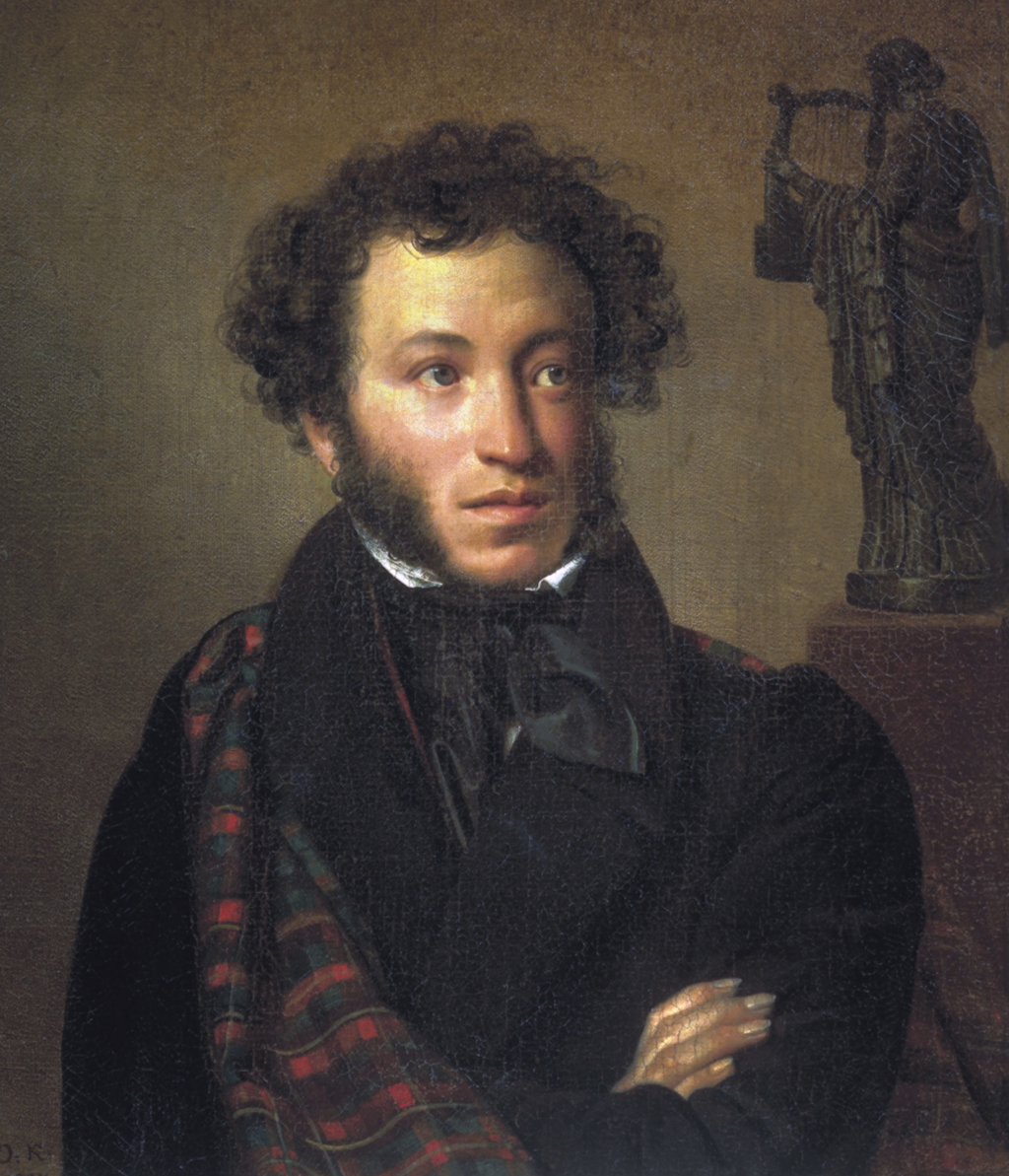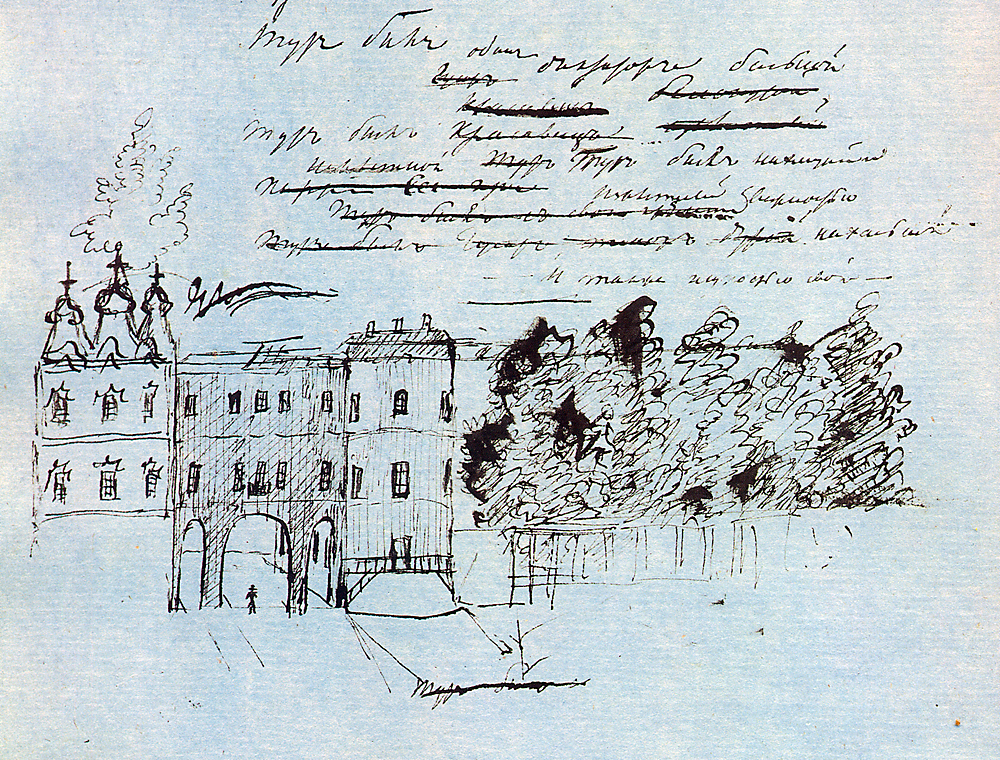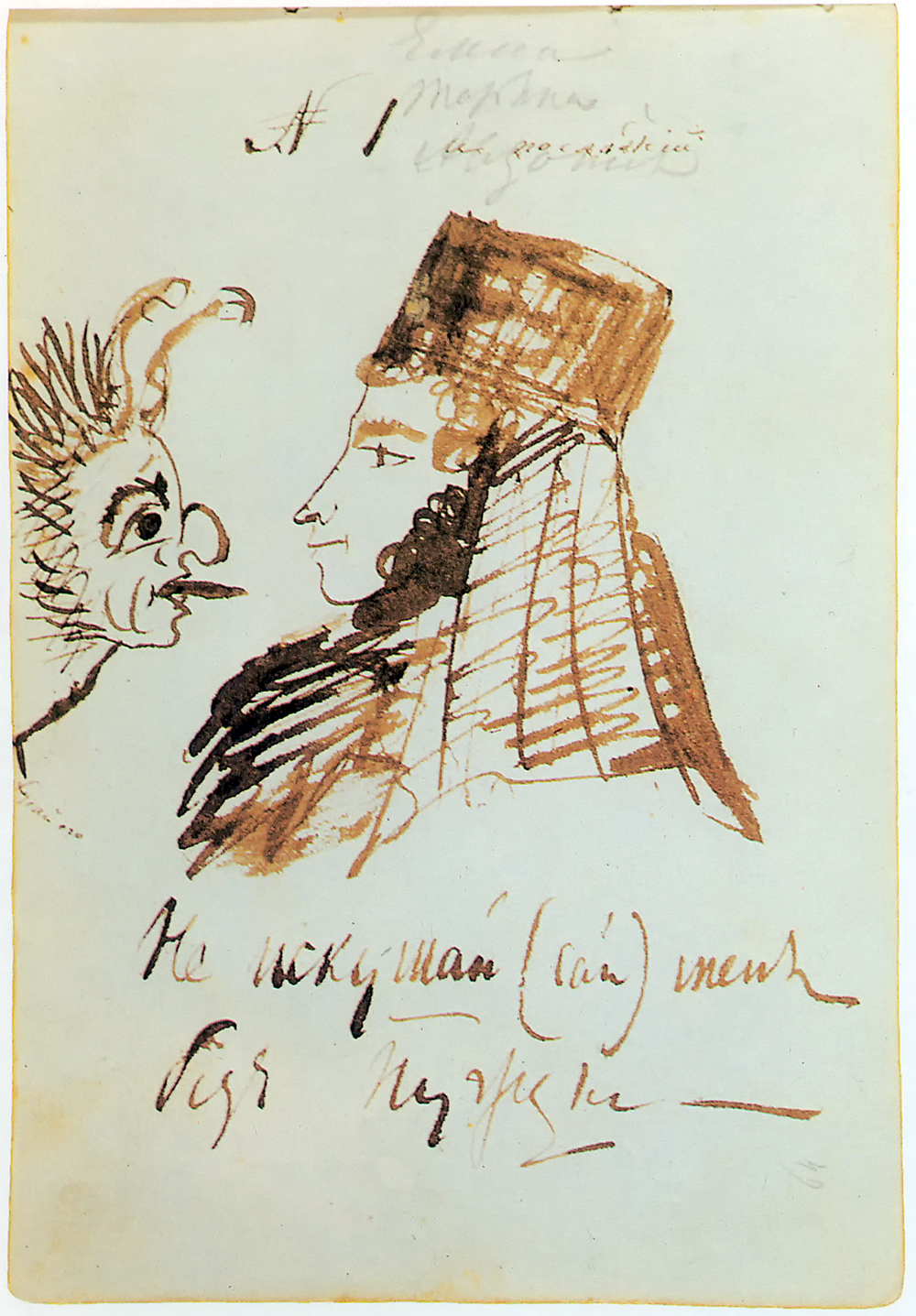
Alexander Pushkin (1799-1837) is rightly considered to be the founding father of the modern Russian language. He rejected the high-blown style of classic Russian poetry, breaking down the barrier between colloquial speech and the elevated odes of the past. Russians still use Pushkin’s language today.
Pushkin had an unbelievably broad scope as a writer. He wrote classical odes, romantic poems, love and political verse, novels in verse, historical drama, realist prose, novellas, short stories, fairy tales, travel journals – and much more, besides. Many of his works became foundational texts in their genres.
Pushkin identified the main themes that would keep Russian writers busy well into the 20th century. The suffering of a humble individual of low rank, the confrontation between an exceptional character and society, the painful choice between duty and personal happiness, a loner's rebellion against the system – all these subjects were first raised by Pushkin, before becoming central ideas in works by other great Russian authors such as Dostoyevsky, Tolstoy, Chekhov and Bunin.
One of Pushkin's key works is the verse novel Eugene Onegin. A prominent mid-19th-century literary critic called it an “encyclopedia of Russian life,” reflecting its comprehensive coverage of the country’s life and culture at the time.
An opera, a ballet and numerous drama adaptations of Pushkin’s great work further support and promote its international reputation. Eugene Onegin was written over the course of several years (from 1823 to 1831), changing and developing along with Pushkin and his time.
Take a test: Which character are you from Eugene Onegin?
Another reason for Pushkin’s continuing popularity is the seeming simplicity of his works. He had the ability to create vivid images with just two or three words, imprinting them in the reader’s mind. There is an illusion of spontaneity to his precise use of language, yet his notes show that he meticulously crafted every line.
 A sketch by Pushkin: The Lyceum in Tsarskoye Selo, 1831. Source: Vostock-Photo
A sketch by Pushkin: The Lyceum in Tsarskoye Selo, 1831. Source: Vostock-Photo
Pushkin’s reputation soared after his death, but he did not enjoy such a lofty place in Russian society while he was alive. He had a keen sense of humor and loved sneaking swearwords into his verse. He was also a prolific author of scathing epigrams, and did not shy away from targeting high-ranking officials. This led to problems with the authorities and challenges to duels.
Pushkin spent several years in exile for his Ode to Liberty, which has the following lines:
“Autocratic miscreant,
Thee, thy throne I detest,
Descent means thy children’s death
With savage delight I see.”
Emperor Alexander I first exiled the poet to the south of Russia and then placed him under house arrest at his Mikhaylovskoye estate in Pskov Region. Pushkin was friends with many Decembrists – revolutionaries who demanded a constitution and social freedom – and had he not been exiled, he would almost certainly have taken part in the Decembrist uprising of 1825 in St. Petersburg. Pushkin never advocated overthrowing the tsar, but he did champion an individual’s right to freedom and private space and fought against censorship. “There is no happiness in this world, / Only peace and freedom,” Pushkin wrote in one of his poems, summing up the eternal aspiration of Russian people.
 Self-Portrait with Klobuk in drafts, 1829. Source: Vostock-Photo
Self-Portrait with Klobuk in drafts, 1829. Source: Vostock-Photo
Pushkin was a well-known admirer of female beauty and acquired the reputation as a Don Juan. He penned perhaps the most famous love poem in Russian poetic heritage: “I loved you: yet the love, maybe, / Has not extinguished in my heart…” In his verse novel Eugene Onegin, Pushkin also formulated a “rule” of courting that is still regularly referenced in Russia: “The less we love her when we woo her, / The more we draw a woman in.”
Many writers recognized Pushkin's greatness. At a session of the Society of Lovers of Russian Literature in 1880, Dostoyevsky delivered a lengthy speech about the poet. “There had never been a poet with a universal sympathy like Pushkin’s. And it is not his sympathy alone, but his amazing profundity, the reincarnation of his spirit in the spirit of foreign nations. It is a reincarnation almost perfect,” Dostoyevsky stated. Speaking at the opening of a monument to Pushkin in Moscow, Ivan Turgenev, the author of the famous novel Fathers and Sons, said: “The very essence, all the features of his poetry chime with the features and essence of our people.”
Read more: The highlights of Alexander Pushkin's creative life
A Pushkin cult developed in the USSR, and he became a state symbol. Every literature classroom – and many private apartments – had one of the two famous portraits of him by Tropinin and Kiprensky. In 1937, largescale celebrations were held to mark the centenary of his death, followed by equally largescale celebrations of the 150th anniversary of his birth. His anniversaries were marked by the release of cigarettes called “Remembering Pushkin”, as well as “Pushkin” matches, stamps, crockery, soap, perfume and many other items bearing his picture.
All rights reserved by Rossiyskaya Gazeta.
Subscribe
to our newsletter!
Get the week's best stories straight to your inbox